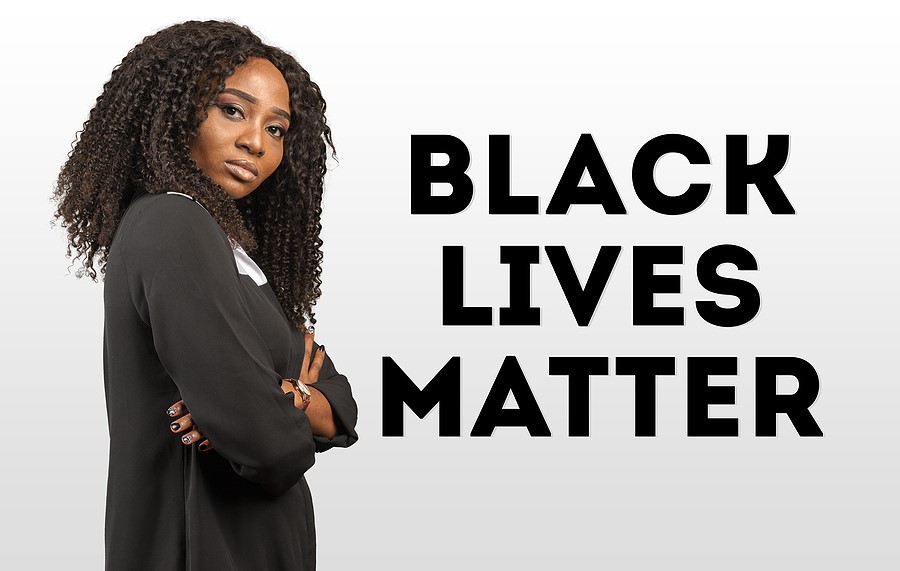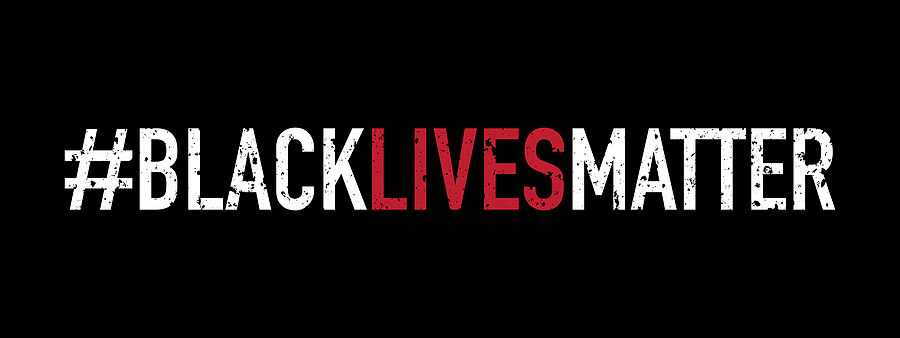 |
|
On May 25th, 2020, the world raised its head to witness and protest as George Floyd was killed by police officers in Minneapolis. The video that captured this senseless crime sparked outrage and worldwide protests. Something broke in every person that saw the horrific video. There is something unnatural to witness a man begging for his life with the words, “I can't breathe," and asking for his mother, who had already passed, as his last breath left his body. Many believed that George Floyd was profiled, victimized, and ultimately killed because he was black. The Black Lives Matter movement quickly caught community outrage that extended to social media, prompting protests globally to say 'No' to this vicious type of hate crime. It was not the first, but as a society, the community was begging for it to stop. “Enough is enough!” cried protesters.

On June 9th 2020, Trinidadians came out and protested as we stood in solidarity with the world echoing the belief of The Black Lives Matter movement. To the surprise of many, it is believed that this type of discrimination does not happen in a country like Trinidad and Tobago because we are, after all, considered people of colour. We are not white, but it seems that we are still capable of committing crimes against our very own. Even today, with all our technology and advancements the African community faces a harsh road.
In speaking with members of the community, I was appalled to hear some of the situations that still take place within our own backyard, even today. In reaching out to different members of our society, I was saddened and angered to hear some of the experiences that my fellow countrymen have had.
One individual who I spoke to told me of the first day she went out with her resume to be interviewed for a clerical assistant position for a well-established company. She was so excited because she had the necessary qualifications along with previous experience in the field. Dressed in her crisp white shirt and navy trousers, she thought she looked sensible and business-like. She did her interview and like most persons who completed an engaging interview felt as though she had aced it. She was told that she would be contacted later in the week to do a follow up if successful. She asked the receptionist on the way out if she could use the bathroom and was pointed to it. On her way out, she overheard the interviewer telling the receptionist that she was "Way 'too black' to be hired [and the company] doesn’t want that kind of person in our front office." After telling me of this experience, she went on to open up to me that [she] never felt so ashamed in [her] life and by the time she had reached home, being unable to fathom what was said, broke into tears. “Being judged and put down for something you have no control over is really hard,” she said. In speaking with this young lady, I felt utterly helpless in my own right. Listening to her emotions was heartbreaking. You would not believe that these things still happen in sweet T&T!
Another woman told me about her plight last year when her fourteen-year-old daughter almost ran away from home. She had been asking her mother to give her permission to relax her hair. “My child too young for that,” was the mother’s response. It became a source of tension so badly in their home that the child was planning on running away. Thankfully, she confessed it all to her elder sister who then went and spoke to their mother about the situation. Apparently, there were children in the school that were calling her names because of her natural African hair, calling her 'wire hair' and 'nappy girl'. They were not nice names and the child was dealing with this all on her own at such a young age. This experience has led me to ask the pressing question: “Are we as a society still that backward?” It is unimaginable, but in some ways, it seems that the answer is, “Yes, we are.”
A young man who does odd jobs around my neighborhood told me that he was once very excited going into the working world. But after numerous interviews, he felt rejected because of his dark skin and had no choice but to take odd jobs to pay his bills. He was even told by one individual that he should try using 'Vicco' to lighten his skin. It would help him to fit in. What does it mean to 'fit in'? Were we always this ignorant as a nation? I cannot believe that this is who some of us are as Trinbagonians.
I admit that the sadness that came from some of my interviewees was disheartening. But then I spoke with Jabari, a young entrepreneur, who has his head held high proudly and is not ashamed of who he is or his culture. He told me how he was made to feel different all his life because of his predominant African look and was made to feel lesser than others by his own family members. He also told me of an incident which occurred quite recently where he went into a bakery to purchase an item, paid, and then when he went back to add something to his bill he was told that he never paid for the first item, so subsequently had to pay twice. He was humiliated in front of other customers, but thankfully he was strong enough to stand up for himself and demand that the manager look over the camera footage. He returned the same afternoon and was given a quiet apology. But the harm was already done because while his humiliation was done in front of customers, his apology was handed to him quietly with no witnesses. He laments that those customers who witnessed it would forever mark him as an “another black boy that stole”. When I asked him whether racism had changed him, he responded by saying that he tries to stay away from other races because he does not want to go through the situation where he will be judged because of his skin color. “Racism has brought me to tears at times,” he said. Thank goodness that Jabari is strong in himself and knows that other people’s reactions do not define him. Jabari gives me hope that this will not be the end of the story. We will evolve and we will one day all be proud of one another...
Lastly, probably the most poignant interview for this story was with a now well-established full-time musician and music producer, Lou Lyons. The wisdom and experience echoed through his voice. He spoke of his early days when he was just starting out studying Journalism. He felt he always carried himself with professionalism and worked hard to be punctual and good at his tasks. One day, in front of his peers, a prominent member of the Board for the station that he was working at called him out because he had dreadlocks in his hair and asked him if he felt he was really presentable and if he thought his hair was the best that he could do. The person went on to tell him that he knew of guys like him who wanted to look like bad boys. That person made an assessment based on his look that he would not work hard when most of his peers knew him to be one of the hardest working members of their group. He felt desensitized to the situation as he was accustomed to being called out for his dark skin and hair and people always made assumptions about him, but he was deeply disappointed that such a prominent person, someone he had looked up to and respected, could judge him so harshly.
He told me that in the first six months of getting his driver’s permit he was pulled over seventeen times and just randomly selected to be questioned. In his opinion, these situations were all brought on by his look and he is now mentally prepared whenever authority is involved to face some sort of interrogation.
The good thing about this interviewee though was that although living through these situations has changed him, he does not consider it a negative change. He wants to have more thought-provoking conversations on race, color and injustice. To this day he has not been able to bring himself to watch the video on George Floyd. It brings up too many old wounds. But his focus is on the future: How will this change the world? Will Black people ever be judged fairly? What kind of world will his daughters have to grow up in? Will his children also have to race the double standards of society and are the odds ever going to be in their favour? He is not only concerned as a person of color, but he is concerned as a father. Will human beings ever change?
This was a hard article to write. I must admit that I, like the rest of the world, was ignorant of this plight. Sometimes I think the days of slavery and oppression are way behind us. But it is not so. The world still discriminates and profiles people for the color of their skin and the texture of their hair. As far as I thought we had come, we have not moved far enough to stop judging people based on these outward qualities. We in the Caribbean have almost gotten accustomed to racism and colorism and have found ways to normalize this behavior. We have even accepted and welcomed ways to change our looks to fit in. For example, while some Africans do straighten their hair for beauty purposes, many do it to simply fit in and not be made fun of for their natural hair. Some, of various races, who are made fun of for their skin colour go to many extremes to lighten it. But why should a person change his/her appearance to make others comfortable? And if you are ignorant enough to be bothered by someone’s skin color or hair texture, then maybe you yourself are the problem.
George Floyd was not the first and even with all the protesting, he may not be the last. But he did open the eyes of the world to the harm of hate crimes. He did ask the world to stand up and shout out: BLACK LIVES MATTER!
As members of the beautiful Trinidad and Tobago, we cannot be exempted from this fact. We are all responsible and accountable to make the change. We cannot stop every person from profiling and discriminating but we can be the change we expect from others. We can start by teaching this to our children, teaching them to not make fun of or bully others. The change starts at home. Gone are the days of slavery and oppression! The change must happen globally for us to respect and treat all with equality and understanding.
Images sourced from Bigstock
 |
By: Nerissa Hosein | FEATURES | December 2020 |
Tweet |
Warning: array_search() expects parameter 2 to be array, null given in /home/paradisepulsea/public_html/pages/article.php on line 87
Warning: in_array() expects parameter 2 to be array, null given in /home/paradisepulsea/public_html/pages/article.php on line 104
Warning: array_search() expects parameter 2 to be array, null given in /home/paradisepulsea/public_html/pages/article.php on line 87
Warning: in_array() expects parameter 2 to be array, null given in /home/paradisepulsea/public_html/pages/article.php on line 104
Warning: array_search() expects parameter 2 to be array, null given in /home/paradisepulsea/public_html/pages/article.php on line 87
Warning: in_array() expects parameter 2 to be array, null given in /home/paradisepulsea/public_html/pages/article.php on line 104


| Subscribe |










%20-%20Copy.jpg)

